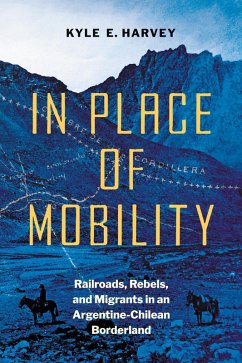In the mid-nineteenth century, decades after independence in Latin America, borderlands presented existential challenges to consolidating nation-states.&8239;In Place of Mobility&8239;examines how and why these spaces became challenging to governments and what their meaningfulness is for our understanding of the development of a global world by examining one of those spaces: the Trans-Andean, an Argentine-Chilean borderland connected by the Andes mountains and centered on the Argentine region of Cuyo. It answers these questions by interweaving three narratives: Chilean migration to western Argentina; mountain-crossing Argentine rebels; and the formation of plans for railroads to cross the mountains. Out of these narratives emerges a twofold argument that, on the one hand, locates the causes and stakes of foundational national conflicts in Argentina in a Pacific-facing Trans-Andean and, on the other hand, sees the Trans-Andean as part of mid-nineteenth-century globalization, thus connecting national conflicts, nonnational geographies, and globalization. As a result, this book challenges dominant narratives about social and political conflicts at this formative moment in Argentine and Latin American history while opening up discussion on the methodologies and meaningfulness of transnational, borderlands, and global histories.








